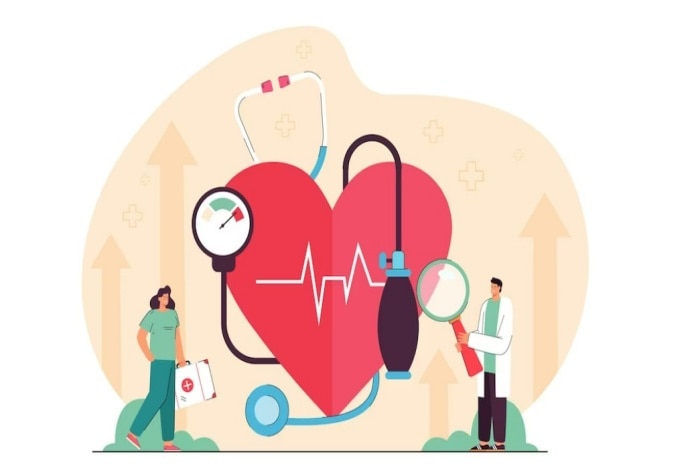When there is a disturbance between the signal-receiving heart and brain, the heartbeat tends to miss the rhythm and can sometimes be life-threatening as well.
Our heart has a rhythmic beat that helps blood and oxygen flow through the body. These heartbeats are usually synchronized with neurological signals that are sent from the brain. Therefore, when the heartbeats get out of rhythm, the system goes out of sync, which is called a cardiac arrhythmia. Basically it is a failure when the electrical impulse is disturbed and these are in charge of regulating the heartbeat.
The conduction system of the heart is also responsible for keeping the heart rate in a particular range (resting rates between 60 and 100 beats per minute). Any condition that affects the rhythm or heart rate results in a cardiac arrhythmia or dysrhythmia.
CARDIAC ARRHYTHMIA: 6 SIGNS AND SYMPTOMS
- palpitations: Become aware of your own heartbeat, resulting in a sensation of fluttering, racing, or beating too hard or too slow.
- Chest discomfort: One may feel discomfort, pain, or pressure in the chest area.
- Difficulty breathing: You may experience shortness of breath or a feeling of shortness of breath.
- Dizziness or lightheadedness: Some people with arrhythmias may feel dizzy or almost faint.
- Fatigue: Feeling of excessive tiredness or lack of energy.
- Perspiration: Unexplained sweating, especially during periods of rest or minimal exertion.
As much as a single extra beat, called an ectopic, can cause symptoms, and sometimes the patient may not be aware of the underlying heart rhythm disturbances. Cardiac arrhythmias can last for a variable period of time ranging from a few seconds to several hours or days.
PROBABLE CAUSES OF CARDIAC ARRHYTHMIA
Certain conditions that increase the risk of arrhythmias include:
- coronary artery disease (problems with the blood supply to the heart)
- heart muscle weakness
- diseases of the heart valves
- hypertension
- diabetes
- thyroid disease
- conditions that cause electrolyte disturbances in the blood.
Sometimes these can be due to abnormalities in the electrical circuitry of the heart. Cardiac arrhythmias in some cases can be caused by excessive anxiety or stress, lack of sleep, excessive consumption of caffeine or alcohol.
PREVENTION AND TREATMENT OF CARDIAC ARRHYTHMIA
Not all cardiac arrhythmias are treated the same. Depending on the nature of the cardiac arrhythmia, the physician may choose not to treat, advise on treatment of the underlying causative problems, such as smoking, alcohol use, optimal control of high blood pressure, diabetes, heart problems. overweight and excessive anxiety or stress. Different types of therapies related to the cardia can be performed depending on the rhythm of the heart rate.
Not all, but certainly some forms of cardiac arrhythmia can be prevented. This would mean that early diagnosis and proper treatment of heart conditions, as well as diabetes, high blood pressure, high cholesterol levels, thyroid and sleep, can prevent cardiac arrhythmia. Addressing excess stress, anxiety, reducing caffeine intake, quitting smoking, regular sleep, healthy eating habits, and regular exercise may help.
Published Date: July 7, 2023 9:16 AM IST
–>
–>


